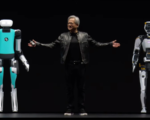Concerns have arisen regarding potential short circuits within the sensors of these specific models, leading to a potential malfunction in their airbag deployment mechanisms.
The primary function of these sensors is to ensure the appropriate deployment of airbags, withholding deployment if a small adult or child occupies the front seat.
To address this issue, Toyota and its subsidiary brand, Lexus, plan to conduct comprehensive inspections of the Occupant Classification System (OCS) sensors in the affected vehicles. Any necessary replacements will be executed at no expense to the vehicle owners.
By mid-February 2024, Toyota aims to notify affected customers regarding their vehicle’s inclusion in the recall. This proactive approach seeks to promptly address any potential safety concerns related to the OCS sensors.
This isn’t the first instance of Toyota’s attention to OCS sensor-related issues. In July 2022, the company recalled approximately 3,500 RAV4 models in the US due to concerns about potential internal part interference that could cause the OCS sensor to inaccurately detect passenger presence, reflecting the company’s dedication to addressing safety concerns in their vehicles.
Airbags in the front of vehicles have saved more than 50,000 lives in America over 30 years, the National Highway Traffic Safety Administration said.
Over time, airbag systems have undergone substantial evolution. Previously, older airbag mechanisms lacked the sophistication to differentiate between various drivers and occupants.
Such uniform deployment posed significant risks, particularly to children, small adults, and individuals who remained unbelted, resulting in injuries and, in rare instances, fatalities. The agency highlighted incidents where these occupants were situated too closely to the airbag during deployment, emphasizing the critical need for improved safety measures in airbag technology.
















